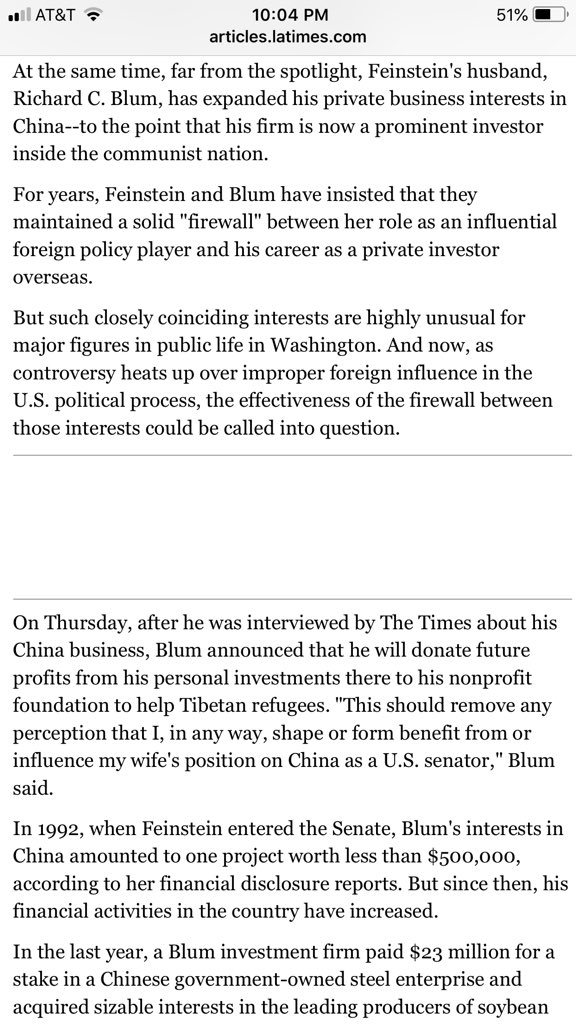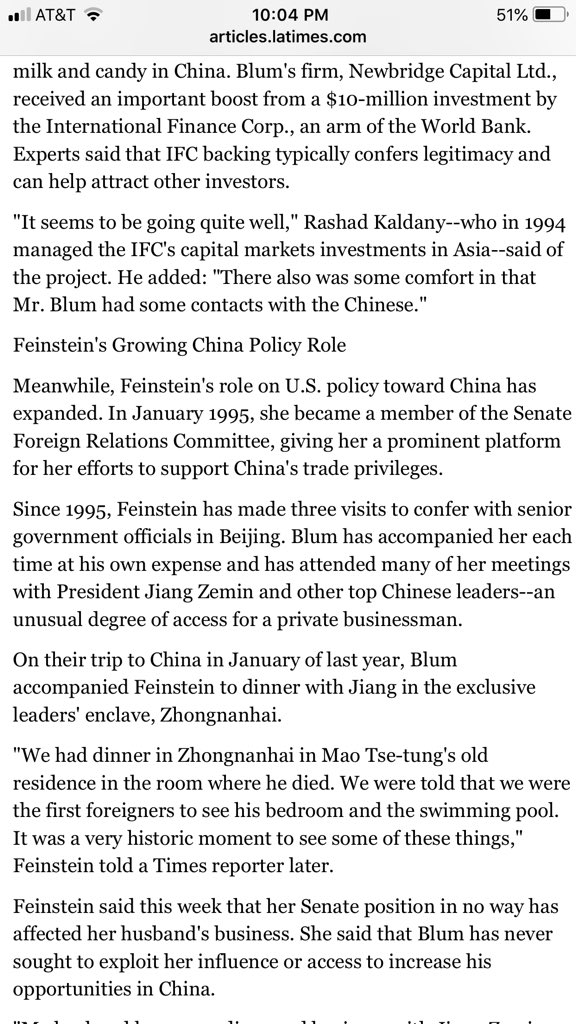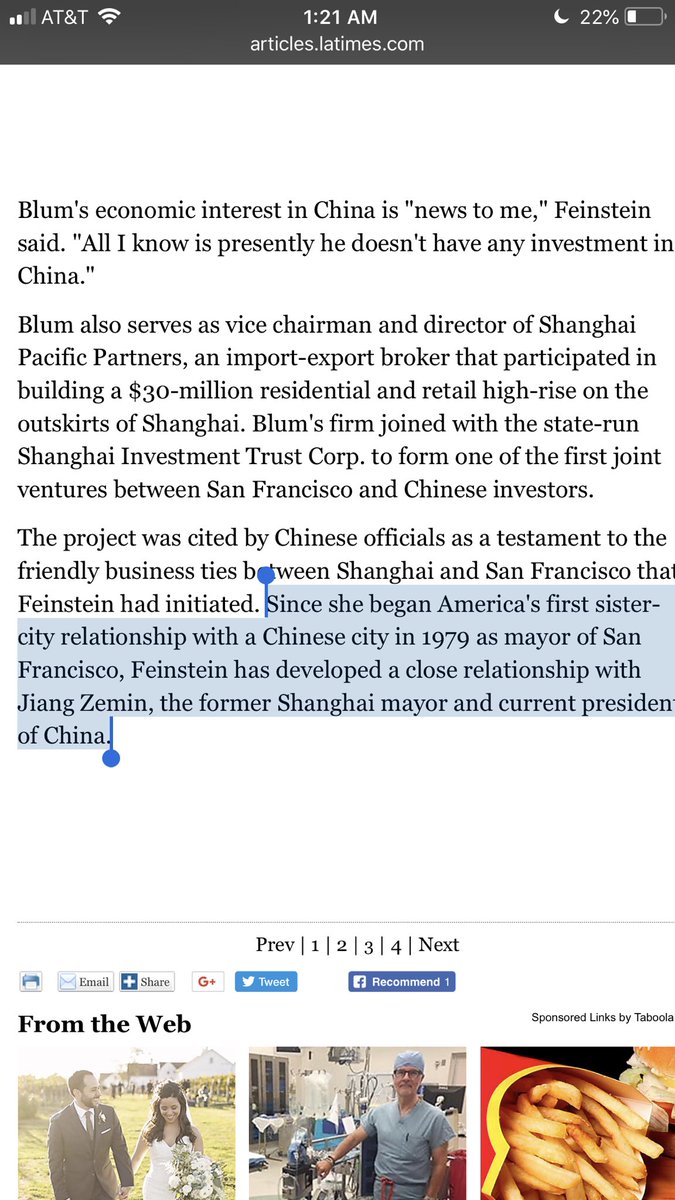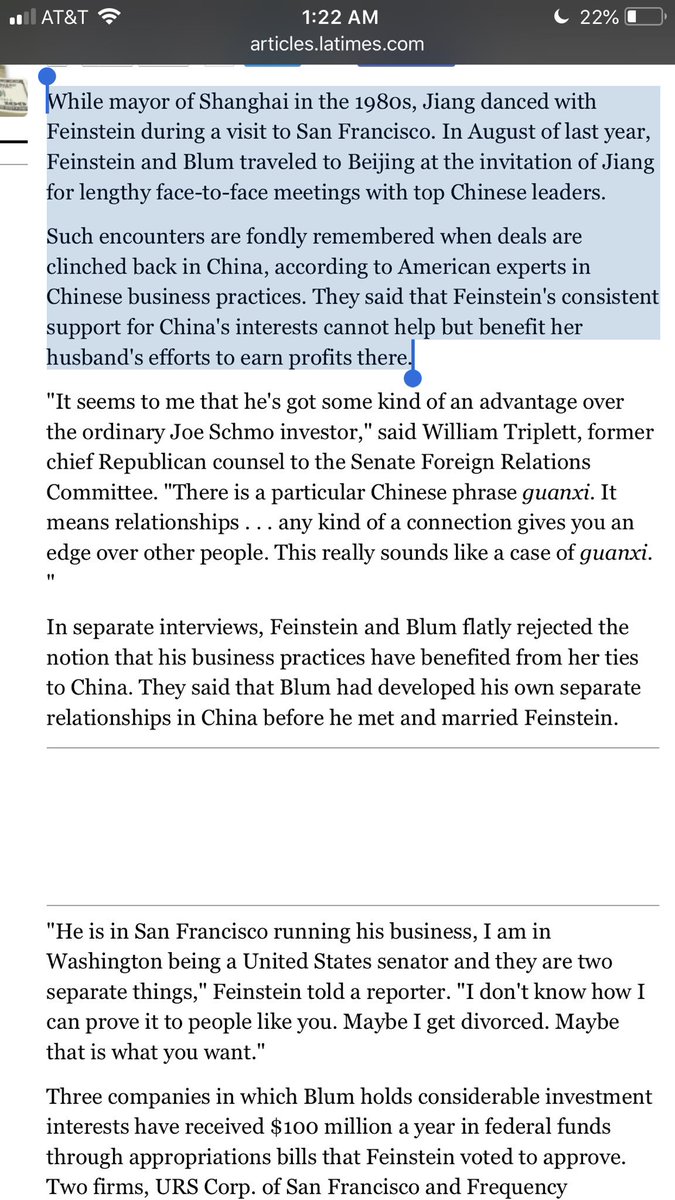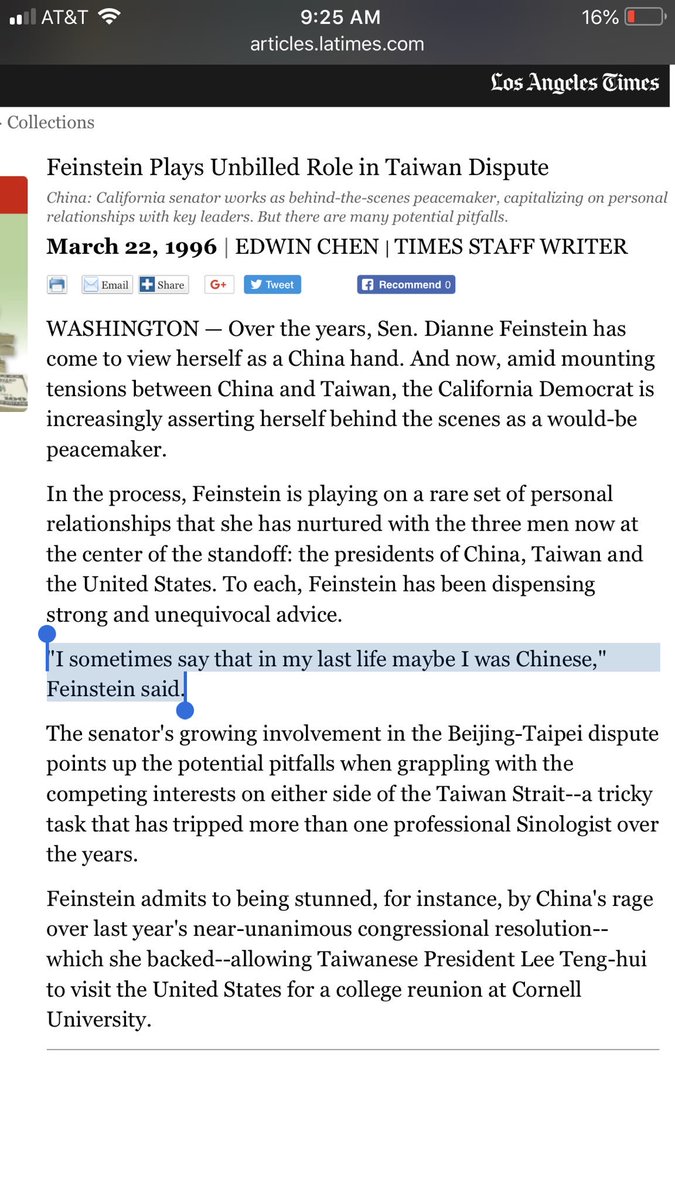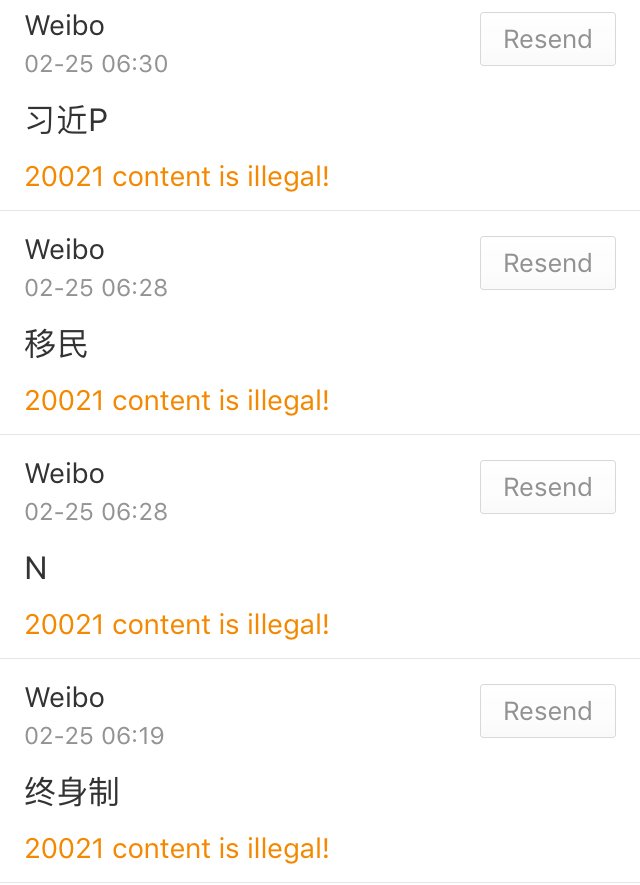The Riadys had been friends and supporters of the Clintons since Bill Clinton was governor of Arkansas. Clinton named Huang, a top fundraiser for the DNC, his deputy assistant secretary of commerce.
China has for almost 40 years cultivated warm relations with Feinstein.


